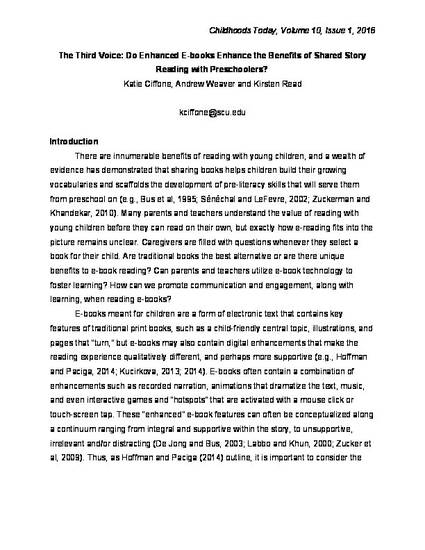
This study from which this paper draws examined the benefits of reading plain e-books (with parental instruction) compared to enhanced e-books (with limited parental direction) with 3- to 5-year-old children. Interaction was measured through parent-child verbal communication and eye contact. Engagement was measured through time spent visually focused on the story, and retention was measured through open-ended story event recall questions and multiple-choice story vocabulary questions. There were no differences between the enhanced and plain e-book conditions in children’s qualitative engagement with the story, or in the amounts of vocabulary or story events they retained. While enhanced e-books resulted in more time spent gazing at the device, parents and children were significantly more interactive when reading plain e-books. These findings suggest that while both plain and enhanced e-books are effective in aiding children’s retention of words and story events, plain e-books read by a caregiver are better at promoting meaningful conversation.

Copyright © 2006 University of Sheffield. All rights reserved.